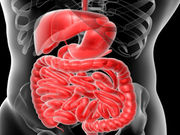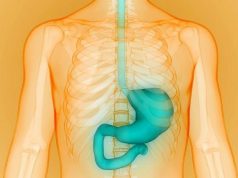Fecal microbiota transplantation found to improve symptoms in treatment-resistant patients
TUESDAY, May 24, 2016 (HealthDay News) — Fecal microbiota transplantation (FMT) appears to alleviate symptoms in treatment-resistant ulcerative colitis patients, according to research presented at the annual Digestive Disease Week, held from May 21 to 24 in San Diego.
Sudarshan Paramsothy, M.D., a gastroenterologist at the University of New South Wales in Sydney, and colleagues analyzed 81 ulcerative colitis patients whose disease was resistant to standard non-biologic treatments. Participants were randomized into two groups, with 41 receiving repeated FMT over eight weeks and the rest receiving a placebo.
After eight weeks, 27 percent of FMT recipients achieved the study’s primary goal, which was patients reporting no ulcerative colitis symptoms and doctors determining through endoscopic examination that the lining of the colon had healed or significantly improved. Only three of the 40 patients, or 8 percent, in the placebo group had achieved this goal. When researchers counted only those patients who reported being symptom-free, without colon observation, they found that 44 percent of FMT patients reached this milestone, compared to 20 percent in the placebo group.
“This study shows that FMT is a very promising therapeutic option for ulcerative colitis patients,” Paramsothy told HealthDay.
Copyright © 2016 HealthDay. All rights reserved.








